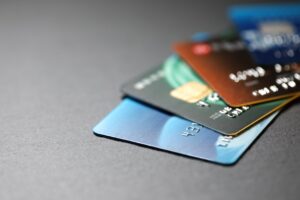The security of personal credit has never been more important in this increasingly digital world. Data breaches and identity theft continue to get more common, putting financial fraud at risk and affecting millions of people. One of the best ways to protect your personal information against unauthorized access into your credit is freezing it.
Throughout this article, we are going to look at the very reasons why freezing personal credit is so important, how it works, and, more importantly, when it works best. By grasping how such a credit freeze will be able to protect you, you can take proactive steps in securing your financial future.
1. What is a Credit Freeze?
A credit freeze, also called a security freeze, refers to how you can restrict access to your credit report. Once your credit is frozen, no lender or any other interested party will have any access to anything that concerns your credit without your explicit permission. In essence, this blocks any would-be creditors, including banks and credit card companies, from approving any new lines of credit in your name.
A credit freeze is an important protection against identity theft. Assuming the thief has access to your personal information, such as your Social Security number or at least part of your credit card number, he may attempt to open new accounts in your name. If you have a credit freeze on, however, this will not be possible, as the lender will not have access to your credit report.
-
- KEY FEATURES OF A CREDIT FREEZE:
-
- Prevents unauthorized access to your credit report.
-
- Does not affect your credit score.
-
- Can be lifted, or “thawed,” when necessary for applications such as those for loans.
2. Why Freezing Personal Credit is Important
Freezing your personal credit provides added protection against identity theft and fraud in finance. In the last couple of years, there has been a tremendous hike in data breaches and hacking incidents, always leaving vulnerable personal data to the hackers. Following are some of the main reasons why freezing personal credit is crucial:
A. PROTECTION AGAINST IDENTITY THEFT
Identity theft is when fraudsters use your identity, which involves your Social Security number, credit card details, or address, to perform a crime. They can open new credit accounts in their victims’ names, obtain bank loans, or use them for e-commerce purchases. Once your credit is frozen, no potential lender will be able to access your credit history, and thus, most identity thieves are unable to open new accounts in your name.
B. PREVENTS UNAUTHORIZED CREDITS APPLICATIONS
One of the most dangerous results of a data breach is the taking of stolen information and setting up credit cards or loans. Once your credit is frozen, no new credit is issued to anyone but you. This extra layer of security ensures that only you can determine who has access to your financial information.
C. SAFEGUARDS YOUR CREDIT SCORE
Although a credit freeze does not improve your credit score, it helps protect your credit score. Unpaid bills, maxed-out credit cards, and missed payments are grossly damaging to credit scores and are often the result of identity theft. Since a credit freeze prevents these unauthorized opened accounts in the first place, it helps maintain your credit score and protects your financial health.
D. PEACE OF MIND
This provides a certain type of confidence in times when cybercrimes are rampant. Even if a company has been under a data breach and your personal information has been compromised, no one can access your credit report without your permission.
3. When Should You Freeze Your Credit?
While freezing your credit is powerful, it’s not always necessary. Following are cases where freezing your credit is highly recommended:
A. IF THERE HAS BEEN A DATA BREACH
If you receive a notification from a company or service provider that your personal information has been part of adata breach, you should freeze your credit. Bad actors may use the exposed information months or even years later to steal your identity.
B. IF YOU SUSPECT IDENTITY THEFT
If you’ve detected suspicious activity on your credit report, like unauthorized charges or credit inquiries you didn’t initiate, freezing your credit is the best way to stop further damage. By locking your credit report, no one can open new accounts or take out loans in your name.
C. YOU ARE NOT APPLYING FOR NEW CREDIT
A credit freeze is a practical way to prevent fraud if you’re not actively seeking new credit, such as loans, mortgages, or credit cards. The ease of freezing and unfreezing your credit has made it a convenient way to protect your information without affecting your financial plans.
D. FRAUD PREVENTION DURING MAJOR LIFE EVENTS
If you’re moving, starting a new job, or getting married, freezing your credit can provide extra protection during these transitions. These are times when you may share your information more frequently, leaving yourself more vulnerable to identity theft.
4. How to Freeze Your Credit
Freezing your personal credit is easy, and thanks to recent regulations, it’s free. You must contact each of the three major credit bureaus—Equifax, Experian, and TransUnion—to place a freeze on your credit. Here’s how it works:
A. CONTACT THE CREDIT BUREAUS
To freeze your credit, reach out to all three major credit bureaus. They offer online, phone, or mail options. The bureaus will ask for identifying information, such as your Social Security number, birth date, and address.
Here are the numbers and websites for each of the credit bureaus:
-
- Equifax: Visit www.equifax.com or call 1-800-685-1111.
-
- Experian: Visit www.experian.com or call 1-888-397-3742.
-
- TransUnion: Visit www.transunion.com or call 1-888-909-8872.
B. RECEIVE A PIN OR PASSWORD
Once you’ve placed the freeze, each credit bureau will assign you a PIN or password. This will be required when you need to temporarily lift or remove the freeze. Keep these PINs in a safe place.
C. THAWING AND REFREEZING YOUR CREDIT
If you need to apply for a loan, credit card, or mortgage, you’ll need to temporarily lift the freeze. Using the PIN provided by the credit bureau, you can “thaw” your credit report for a specific period or for selected creditors. Afterward, you can refreeze your credit.
5. Credit Freeze vs. Fraud Alerts: What’s the Difference?
While a credit freeze is a powerful way to protect your credit, it’s not the only option. You can also place a fraud alert on your credit report. Fraud alerts work differently from credit freezes and may be more suitable in some situations.
A. FRAUD ALERT
A fraud alert is a note on your credit file that alerts lenders to take extra precautions before opening new accounts in your name. This may involve contacting you directly to verify the application. Fraud alerts are easier to manage than credit freezes, as they don’t block access to your credit report entirely.
Fraud alerts are convenient if you suspect identity theft but still plan to apply for credit soon. However, they don’t provide the same level of protection as a full credit freeze, which completely blocks new credit inquiries.
B. WHICH OPTION IS RIGHT FOR YOU?
A credit freeze offers stronger protection than a fraud alert, as it fully restricts access to your credit report. If you’re not applying for new credit or suspect identity theft, a credit freeze is the way to go. For added security while still applying for credit, a fraud alert may be better suited.
6. The Downsides of a Credit Freeze
Though highly effective, freezing your credit has its downsides. Here are some limitations to consider:
A. HASSLE OF THAWING
If you plan to apply for credit, take out a loan, or even switch jobs (since employers often check credit reports), you’ll need to temporarily lift the freeze. This can be a hassle if you frequently apply for credit or forget your PINs, though the process is generally quick.
B. LIMITED TO NEW ACCOUNTS
A credit freeze only prevents new account openings. It doesn’t stop someone from making fraudulent purchases on existing credit card accounts or bank accounts. It’s still important to monitor your accounts regularly for unauthorized activity.
C. DOES NOT BLOCK CERTAIN ACCESS
Even with your credit frozen, some entities can still access your credit report, such as existing creditors, collection agencies, and government agencies. While this isn’t a major threat, it’s worth noting that a credit freeze doesn’t block all access to your credit information.
Conclusion
One of the most valuable ways to protect yourself against identity theft and fraud is by freezing your personal credit. It restricts access to your credit report, ensuring that only you can approve new credit applications. Whether you’ve been a victim of a data breach or just want an extra layer of protection, freezing your credit is a smart and proactive decision.
While managing a credit freeze takes some effort, the benefits far outweigh the drawbacks. By taking control of your credit profile, you can safeguard your financial future and enjoy peace of mind knowing your credit is well-protected.






